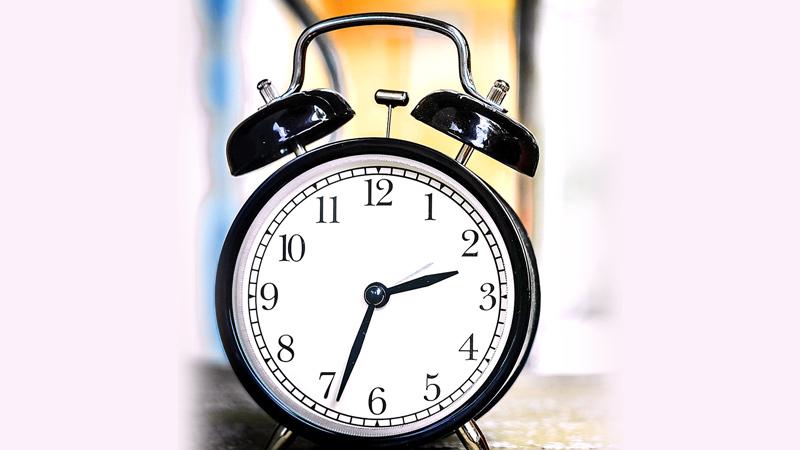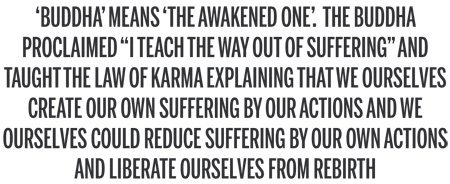
A budding poet approached me and made a request: “Please review my poetry book in your free time.” I wondered for a time whether there is a thing called “free time.” Even when I relax in my easy chair you can call it leisure time.
Although some of us waste time on frivolous activities, time is something invaluable. Time wasted cannot be recalled. You have only a limited time to do thousand and one tasks. Unless you manage your time well, you are likely to give various excuses such as “If there were only more hours in a day.”
 A day has only 24 hours and nobody can increase that number. Vehicles move very slowly in a traffic jam. We call it ‘gridlock’. When we feel that it is impossible to wring one more second out of a crowded day, we are in a state of ‘time lock’.
A day has only 24 hours and nobody can increase that number. Vehicles move very slowly in a traffic jam. We call it ‘gridlock’. When we feel that it is impossible to wring one more second out of a crowded day, we are in a state of ‘time lock’.
To prove that time has value, an executive director at a large establishment in the United States asked everyone to register when they attended a meeting.
At the end of the session he calculated the total price of the meeting in man-hours and converted them into dollars.
He estimated that his organisation had spent a sizeable amount of money for the meeting. Those who attended the meeting were under the impression that they did not spend anything, but the company had incurred a big sum of money for the event.
Time-saving tactics
Most successful people have mastered the art of time-saving tactics. Helen Gurley Brown, one-time editor-in-chief of Cosmopolitan used to keep an issue of the magazine on her table.
Whenever she was tempted to waste time, she glanced at the magazine. It took her back on track. As a busy editor she could not afford to waste time. She soon developed a sense of priorities. She confessed that anybody could work hard throughout the day, but they will be further from the goal than when they started.
Some people have the habit of preparing a ‘to do’ list on the previous day. When you prepare such a list you can review the progress you are making.
When you do not have such a list, you will miss some appointments, meetings and important visits. In a ‘to do’ list you cannot probably mention everything you are going to do on a particular day. Therefore, the list should include only very important events.
If you can allocate a time slot for each task on the list, it is a good way of accomplishing your task. Sometime you will find it difficult to decide what items are more important than others.
On such occasions, you can apply the 80 – 20 rule. You will discover that 80 percent of your business comes from 20 percent of clients. In such a situation, you have to reschedule the priority list.
Modern technology
A friend of mine who runs ten communication centres in different parts of the city says he is riding a wave. He starts work early in the morning and returns home late at night. He is still unmarried and cooks his own meals. To save time he has bought a microwave oven and a refrigerator. Stil,l he finds that he needs more time to do all his work. When he visited his mother who is a schoolteacher, he found that she had no such conveniences. But she always had leisure time to read a novel or talk to her friends.
What is going on? Wasn’t modern technology supposed to provide less work and more leisure? Just the opposite has happened.
People with modern time-saving gadgets still have no time for leisure. Today, you need not write long letters to your clients or friends. You can use e-mail which is fast and cost-effective. You need not wait in a long queue in a bank to transfer money from your account to somebody else’s account. It can be done with your smart phone. But still you have no time for leisure. Labour-saving devices have not eased the drudgery of our lives.
There are two approaches which come to terms with time. The more prevalent view emphasises squeezing maximum productivity out of each second with better planning.
Even ancient Greeks tried to pack every minute with meaningful activity. The less conventional approach suggests just the opposite.
Reduce the volume of your activities and become less concerned about time in order to stay focused on what really matters.
The former approach will contribute to your feeling of being ‘time locked’. If you wish to avoid ‘time lock’ there are many ways to do so.
The harder you try to control time, the more it controls you. The best course of action is to press time to the ground until it eases its grip on your throat. There is no use of trying to conquer time, but you have to learn the art of working with it harmoniously. Some married couples plan their time together before they get involved in other matters. Scheduling time for yourself is the best way to make time available for your leisure.
Clock time
In villages people do not work according to the clock time. They work hard until they get tired. Then they relax in the shade of a tree sipping a cup of tea. Even authors such as Charles Garfield work in bursts of extended industry followed by time to loaf, recuperate and brainstorm before taking on a new task.
The human body is not designed to work non-stop for 24 hours. You need a break at regular intervals. The war-time British Prime Minister Winston Churchill insisted on an afternoon nap.
He wrote, “I regretted having to send myself to bed like a child every afternoon, but I was rewarded by being able to work through the night until two or even later.” Even Napoleon Bonaparte, Anwar Sadat and Thomas Alva Edison used to take a nap in the afternoon. Among today’s sleep researchers there is a consensus that regular naps improve alertness, energy and mood.
Motivational guru Norman Vincent Peale advise busy people to drop everything and simply walk for half an hour if they are stuck in a problematic situation.
Peale himself got stuck when he was writing. Then he stopped writing and read a mystery novel. Most creative people know how to make use of time for work and relaxation.
Waiting time
Sometimes, we are forced to stand in long queues to get certain things done. If you are creative, you can use that waiting time for some useful task. Some people carry poems to memorise while waiting in a queue.
American Singer and lyricist Larry Gatlin composed his popular country song All the gold in California during a Los Angeles traffic jam.
Today, we are invaded by technological inventions. Although we cannot eschew all technology, we can make sure that it does not control us. However, the Amish, the Mennonite sect in the United States severely limits the use of modern conveniences.
They use fewer labour-saving devices and other technological shortcuts. As a result, there is less rushing around. The rushing seems to increase when you have more time-saving devices.
If you really want to take charge of your time, learn the art of using the time-balancing word ‘No. If you have no time to do something, say so boldly. Always refuse to take on more tasks if you are unable to attend to them. You cannot do everything expected from you. You cannot read every novel published in the world.
Similarly, you cannot see every film produced in Hollywood, Bollywood or Kollywood. You have to select what you want to read or see. That means you are now in charge of your time!
